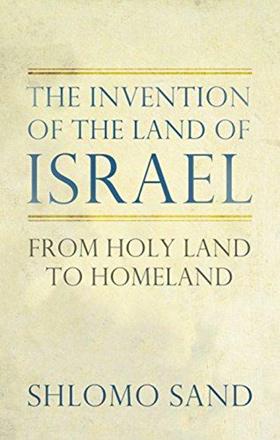You are here
Thwarting Palestinian self-determination
By Sally Bland - Feb 03,2019 - Last updated at Feb 03,2019

Preventing Palestine: A Political History from Camp David to Oslo
Seth Anziska
Princeton/Oxford: Princeton University Press, 2018
Pp.435
In the spring of 1979, US President Jimmy Carter was concerned “that Israel’s concept of Palestinian autonomy provided a cover for burgeoning settlement expansion in the occupied territories”. (p. 131)
If this sounds familiar, it is only one of many parallels drawn in this book between past and present “peace processes”.
While much of what is written today about the failure to solve the Palestinian-Israeli conflict and the Palestinians’ continued statelessness traces the problem back to the Oslo accords, “Preventing Palestine” reverts to the 70s, specifically the Camp David accords. These resulted in the Israeli-Egyptian peace treaty in 1979, but deferred the Palestinian issue to subsequent talks on autonomy. “These autonomy talks sidestepped the PLO and served to prevent a territorial resolution of Palestinian national aspirations, solidifying a condition of statelessness and deliberately undermining sovereignty claims.” (p. 12)
The “ingenuity [of Begin’s autonomy scheme] was to sustain the fiction of serious movement on the Palestinian front”. (p. 13)
“Though often ignored or dismissed as insignificant in accounts of this period, the autonomy discussions became the basis of limited self-rule and, eventually, the emergence of the Palestinian National Authority after the Oslo Accords were signed in 1993.” (p. 3)
Most Palestinians and their supporters, plus the man on the street in the Arab world, would probably agree with Seth Anziska’s central thesis that regardless of intentions, Carter and Egyptian President Sadat caved in to Israeli Prime Minister Menachem Begin’s autonomy scheme which was intended to apply to the people but not the land, and that this has coloured all subsequent negotiations. After all, the Palestinians were not even represented in these talks.
Yet, the trajectory described in this book may contain some uncomfortable surprises for the Western, and specifically the American, public, especially for those who still regard US foreign policy as a force for good in the world. According to the author, “the US role in the autonomy talks — and the very substance of the negotiations themselves — actively undermined the prospects of a solution to the Palestinian question…” (p. 13)
Anziska, a lecturer at University College London, does not think it had to be that way. “At multiple junctures, horizons had opened for possible Palestinian self-determination, and may very well still exist.” (p. 15)
But as stated in the subtitle, this is a history book, and Anziska does not engage in polemics but rather gives detailed accounts of discussions and negotiations and relevant events outside the halls of power, such as the 1982 Israeli invasion of Lebanon. Besides tracing the positions and inclinations of shifting Israeli governments and the administrations of five US presidents, he places these events in the context of changing international realities, from decolonisation, the Cold War and its end, to the rise of the right in Israel and the neocons in the US.
It was Anziska’s background that headed him in the direction of writing this book. As he explains in the preface, he grew up in the Modern Orthodox American Jewish community in New York, with a strong attachment to Zionism. He visited Israel numerous times, culminating in a year of study at a yeshiva in 2001, at the height of the second Palestinian Intifada. “Something did not sit right with me on those frequent journeys. The growing knowledge that my ease of access to travel around the West Bank and Israel as an American Jew came at the expense of local Palestinian inhabitants made me uncomfortable… It was strange to inhabit space so close together and yet have no real interaction with these neighbours.” (p. xiv)
The questions raised in his mind later propelled him to visit Palestinian towns in the West Bank as well as Syria, Lebanon, Jordan and Egypt, and to do extensive research in Jerusalem, London and Washington. At the same time, Israel released previously classified documents considered pivotal for new, original research.
With a few notable exceptions, such as employing the term terrorism to describe Palestinian actions but not Israeli state or settler violence, Anziska maintains a historian’s objectivity. He is obviously very uncomfortable with the on going Israeli occupation, but he does not reveal whether his research has changed his attachment to Zionism. He does, however, quote a British Foreign Office official as saying that Begin “rejects the whole concept of a Palestinian people precisely because the existence of such people would, if acknowledged, call into question some of the moral ground for Zionism”. (p. 139)
What, then, about other Israeli leaders who acknowledge that the Palestinians exist but whose policies have also served to prevent Palestine.
Related Articles
AMMAN — Did Egyptian and American leaders sell out the Palestinians and their quest for statehood in the widely acclaimed 1978 Camp David Ac
The Invention of the Land of Israel: From Holy Land to HomelandShlomo SandLondon: Verso, 2014Pp.
What he means is that they are winning the battle of ideas with Zionism. More and more people are recognising the legitimacy of the Palestinians’ quest for their rights, even as Israel’s ongoing occupation, racism, human rights violations and war crimes chip away at its legitimacy. The terms of the debate have changed in a way conducive to Palestinians advancing their right to self-determination.















